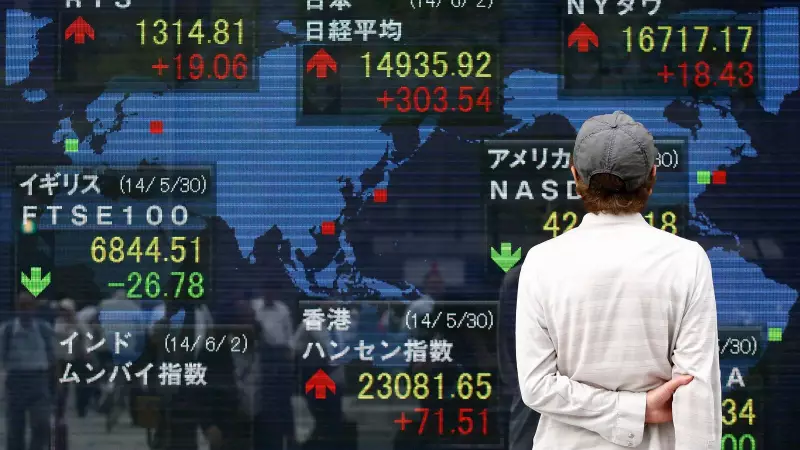
Japanese markets experienced significant turbulence on Monday as key tourism and retail stocks suffered heavy losses following China's official travel advisory against visiting Japan. The diplomatic rift between the two Asian economic powerhouses sent shockwaves through Tokyo's financial markets, with the benchmark Nikkei index declining by almost one percent during intraday trading.
Market Impact and Stock Performance
The China travel warning triggered an immediate sell-off in sectors most exposed to Chinese tourism. Shiseido Co., the prominent cosmetics giant, witnessed a dramatic 11.4% crash during the trading session, reflecting the company's heavy reliance on Chinese consumers. Similarly, Pan Pacific International Holdings, which operates the popular Don Quijote retail stores, saw its shares plunge nearly 10% as investors anticipated reduced tourist spending.
Diplomatic Tensions and Economic Consequences
The escalating diplomatic tensions between China and Japan have raised concerns among market analysts about potential long-term economic repercussions. Chinese tourists traditionally represent one of the largest and most significant consumer groups for Japanese retailers and tourism-related businesses. The official travel warning comes amid growing political disagreements between the two nations, creating uncertainty in regional trade and economic cooperation.
Market observers noted that the timing of the advisory could not have been worse for Japanese retailers, who were banking on the post-pandemic recovery in international tourism. The sharp decline in share prices indicates investor anxiety about prolonged strain in Sino-Japanese relations and its potential impact on corporate earnings.
Broader Market Reaction
While tourism and retail sectors bore the brunt of the selling pressure, the broader Nikkei index also felt the heat, declining by approximately one percent. The market reaction underscores the interconnected nature of Asian economies and how political developments can quickly translate into financial market volatility. Analysts are closely monitoring the situation for any escalation that might further affect bilateral trade and investment flows between the world's second and third-largest economies.
Financial experts caution that the situation remains fluid and investors should exercise prudence while making investment decisions in the current volatile environment. The developing nature of this diplomatic standoff means market conditions could change rapidly, requiring continuous monitoring of both political developments and corporate performance metrics.






